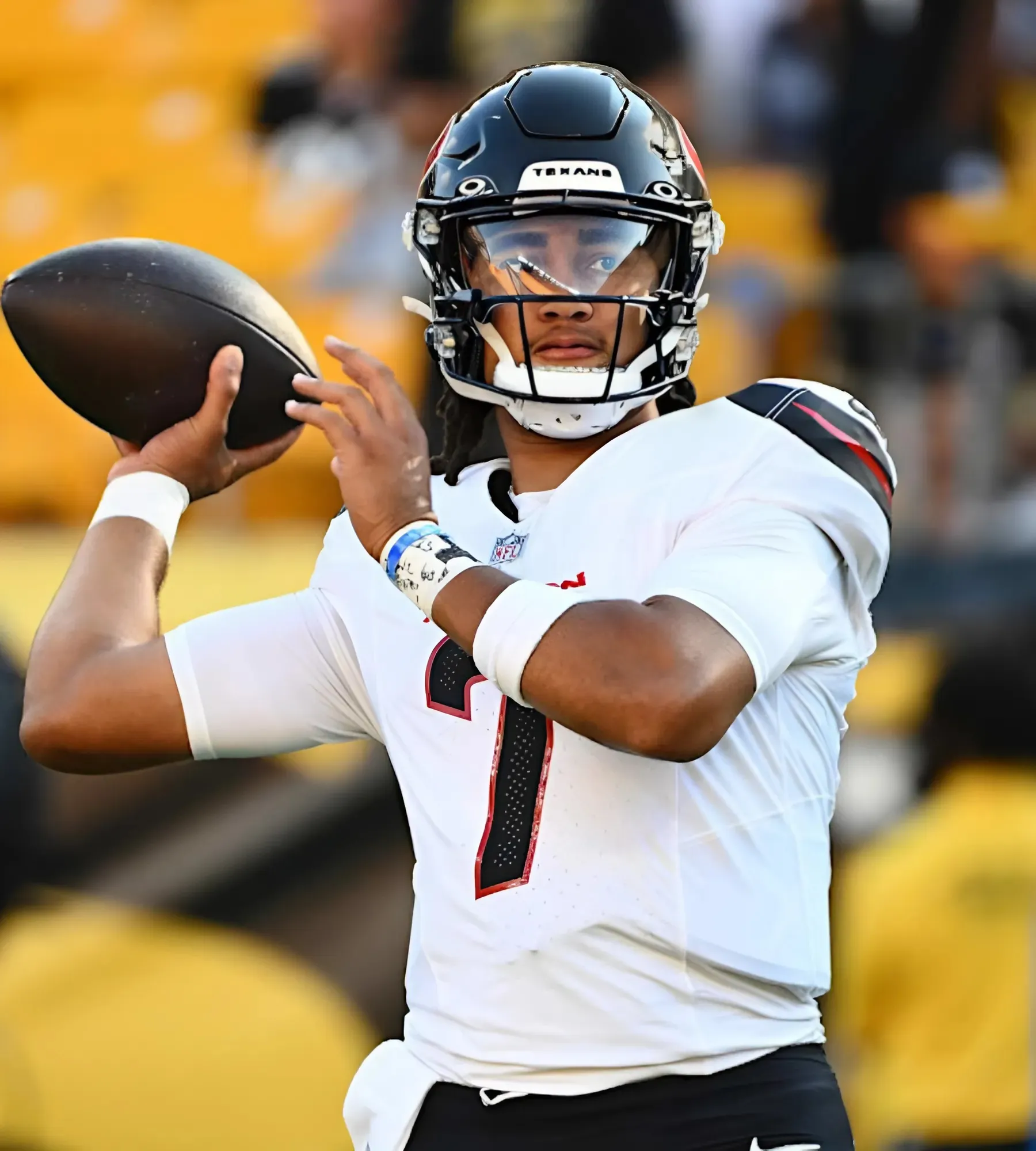Kirk Cousins is in the midst of arguably the worst stretch of football of his career, being the face of Atlanta’s winless November and counting. Why can’t Cousins get back on track?
Every NFL player goes through slumps at various points in their career. What varies is the length and severity of the slump.
In 2017, Julio Jones went six straight games without scoring a touchdown. In 1996, Michael Strahan went seven straight games without recording a sack. In 2009 Adrian Peterson had a seven game stretch of an average 3.5 yards per carry. It’s an odd feeling when one of your franchise players finds themselves performing at a significantly lower level than what they are accustomed to, but we’re all human at the end of the day, and even the best of the best can have off days, weeks, or even months.
But there’s one position that needs to be pretty consistently good every week to give a team a chance at winning, and when they stray away from consistency is when things begin to unravel and effect the entire team. Quarterback slumps happen every year, and while other players can sometimes rely on their position counterparts to pick up the slack, the quarterback is always under a microscope which makes his miscues much more magnified.
Kirk Cousins is the latest signal caller to go through a period of regression, and in my personal opinion, is not only producing the worst four game stretch of his career, but the worst of any quarterback in the last twenty years. Cousins hasn’t thrown a touchdown pass since November 3rd, and in that same stretch he’s thrown eight interceptions, one being a pick six during his four interception game against Los Angeles.
Before 2024, Cousins hadn’t went multiple weeks without throwing a touchdown pass since 2013, the same year he was named starter in lieu of an injury prone Robert Griffin III. It’s highly uncharacteristic for a player of Cousins’ caliber to regress so rapidly after growing more calculated and meticulous as his career has gone on, and while Cousins isn’t topping any greatest of all time charts, he has earned us holding him to a relatively high standard.
So...what went wrong?
Pinpointing the problem for Cousins
Throughout his career, Cousins has been known as a quarterback that takes the safe, sure-handed option when making decisions. I’ve seen Vikings fans call him the ‘check down merchant’, emphasizing his over-reliance on short, easy throws even when the game is on the line.
A good example of this is during the Minnesota Vikings’ 2022 wild card playoff game against the New York Giants, when on 4th and 8, Cousins threw a three yard out route to T.J. Hockenson. The tight end was immediately was wrapped up and taken down by Xavier McKinney, ending Minnesota’s 13-4 season in the first round. Even with three receivers on the play all running routes beyond the line to gain, Cousins took a bet on Hockenson using his body to muscle through contact and get five yards after the catch to save the Vikings Super Bowl hopes.
This isn’t to say that Cousins never airs the ball out, however. His favorite target all time is Justin Jefferson, a wide out who specializes in torching his defenders in medium to deep range. Jefferson, who racked up 518 targets and 5,338 receiving yards during his time catching balls from Cousins, played a key role in Cousins deep ball accuracy improvements, and of course it also helped that Jefferson routinely turns 50/50 balls into 80/20 in his favor.
In Atlanta, attempts at the air raid offensive formula have more or less fallen by the wayside. Many times, especially in recent weeks, receivers have struggled to create space, causing little room for error in Cousins’ throwing windows. The quarterback hasn’t exactly been Hawkeye himself, either, as anyone could have guessed given his absurd touchdown-to-interception ratio of the last four contests. His recent decision making has been completely putrid, as he’s straying further from what made this offense find the sweet spot and work like a well-oiled machine leading up to Week 9.
During that time, Cousins leaned into what he’s done best throughout his career, taking what the defense gives him. He shined early on in short-to-medium range, which forced defenses to play underneath and opened up the occasional Darnell Mooney or Drake London deep shot. As of late, it feels like Cousins looks a lot more rattled, forcing the ball into unnecessary traffic. Often times after watching plays unfold recently I can’t help but to play armchair quarterback and say “who was he throwing to?” or “so and so was wide open.”
Even his quick, intermediate throws have looked off kilter as he’s struggled to hit the mark as of late, with six of his eight interceptions in the last four games coming within 20 yards or less from the line of scrimmage. Somewhere along the line, Cousins believed, and maybe even felt pressured to start pressing the issue more frequently. The question is, why?
While the actual answer is unknown, I believe Zach Robinson’s offensive system has Cousins feeling out of place. For starters, this year marks the lowest percentage of play action plays run by Kirk Cousins since he was with Minnesota in 2018. In fact, through the the first twelve weeks, Atlanta was the only team that hadn’t called over 10% of play action plays.
While I’m not one to play into the ‘system quarterback’ debate when it comes to players, one thing that has been proven is Kirk Cousins shines in offenses that center around the play action. Granted, Cousins is and has never been the most mobile quarterback, a reality even more so now after suffering his season ending achilles injury a year ago, so selling the fakes on the play action has been a challenge. Nonetheless, it’s still one of his strong suits.
For one, play action calls tend to have simpler, more quarterback friendly reads. These plays typically consist of flood or shot pass concepts, which include route combinations that force zone defenses to decide between covering underneath and over-the-top route runners. In the past, these combinations have helped Cousins read and react to coverages, and use better judgement when making throws. Play action plays also typically break the field up, allowing the quarterback to go through his progressions easier as he only has to read a quarter, or one half of the field.
This year, Cousins has been largely going without that element, and forced to play in a more fast-paced offense where he has to quickly take in a lot of information post snap and scan the entire field with reduced mobility, feeling he has to make a positive play before the pressure he can’t escape from gets home. It’s not working smoothly.
Several times this year, Cousins has looked comfortable in this new system, but more often than not, he’s looked confused, disoriented, and uncomfortable. It’s clear Cousins and offensive coordinator Zach Robinson are far from being on the same page, and while I don’t think that the plays being called favor Cousins’ play style or current limitations at all, I feel like the true issue is Cousins trying to be a quarterback that he’s not.
He gets more careless with every interception he throws, almost like he’s trying to prove something he doesn’t need to. Up until this point in his career, Cousins has played to his strengths, and the further he gets from that, the more Atlanta will continue to slide. It’s one helluva slump he’s in right now, but for all our sakes, I hope he starts finding his way out of it Monday night.



